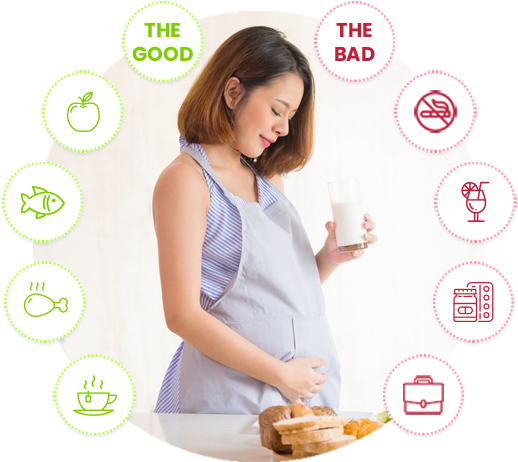A healthy diet in pregnancy is not just a factor of increasing the consumption of food, but it is actually more to do with the balanced and nutritious diet that one consumes. The nine months of the pregnancy term are both to be savoured as well as to be used as a preparatory phase for the life-long job of being a parent.
Many changes are to be expected and embraced – and a healthy diet is what gives you the physical resilience required for you to undergo the rigors of pregnancy, while also nourishing the baby to its optimal growth.
Eating a nutritious diet during pregnancy is linked to good brain development and a healthy birth weight and can reduce the risk of many birth defects. A balanced diet will also reduce the risks of anaemia, as well as other unpleasant pregnancy symptoms such as fatigue and morning sickness.
A well-balanced pregnancy diet includes:
- protein
- vitamin C
- calcium
- fruits and vegetables
- whole grains
- iron-rich foods
- adequate fat
- folic acid
- and others
During the course of pregnancy, it is imperative to consume foods from all the major food groups such as – fruits & vegetables, cereals, milk, fish, meat, and any supplements as suggested by the doctor. While cravings and snacking are perfectly okay, do take care such that you don’t consume excessive fats & sugar-rich foods as snacks.
Another vital aspect of diet during pregnancy is to ensure that you don’t end up picking up excessive weight & increase blood sugars – both of which could prove to be detrimental for labour and childbirth.
Alongside diet, it is important to make good lifestyle choices that will directly impact the health of your baby. These include regular exercise, staying away from being sedentary, and having a proper rest & sleep schedule.

